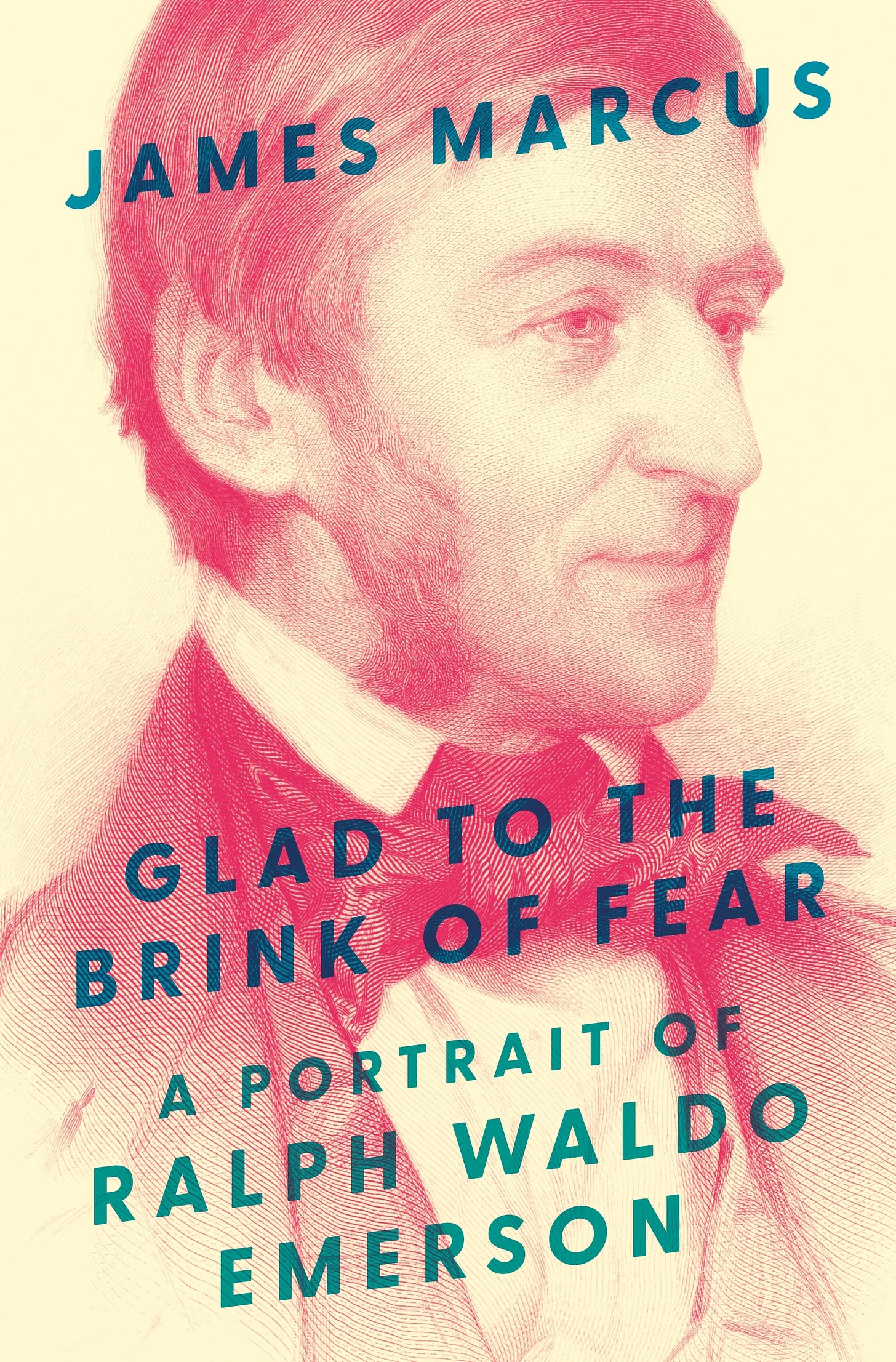There is something in Ralph Waldo Emerson’s life and work that speaks directly to the troubled heart. Certainly he had troubles enough of his own, including the early deaths of a beloved wife and an infant son. Yet in resisting despair he did not spare himself. His unflinching candor can startle, yet consoles and even invigorates. In the essay “Experience,” one of his grandest achievements, he mentions, almost in passing, the loss of Waldo junior, who died in 1842 at the age of five. “In the death of my son, now more than two years ago, I seem to have lost a beautiful estate,—no more.” As James Marcus, who hints at pains and losses in his own life, observes in a new book, Emerson “would entertain any thought.”
Marcus, “an editor, translator, and critic,” is careful to present his book as a portrait, not a biography. Although he pays due tribute to scholars such as Robert Richardson, whose Emerson: The Mind on Fire is surely definitive, he takes a freewheeling, improvisatory approach to his subject. Scholars may object to the result, which is in places so breezy it almost blows itself over, but the enthusiasm overall is endearing, and persuasive.
Keep reading with a 7-day free trial
Subscribe to Book Post to keep reading this post and get 7 days of free access to the full post archives.



